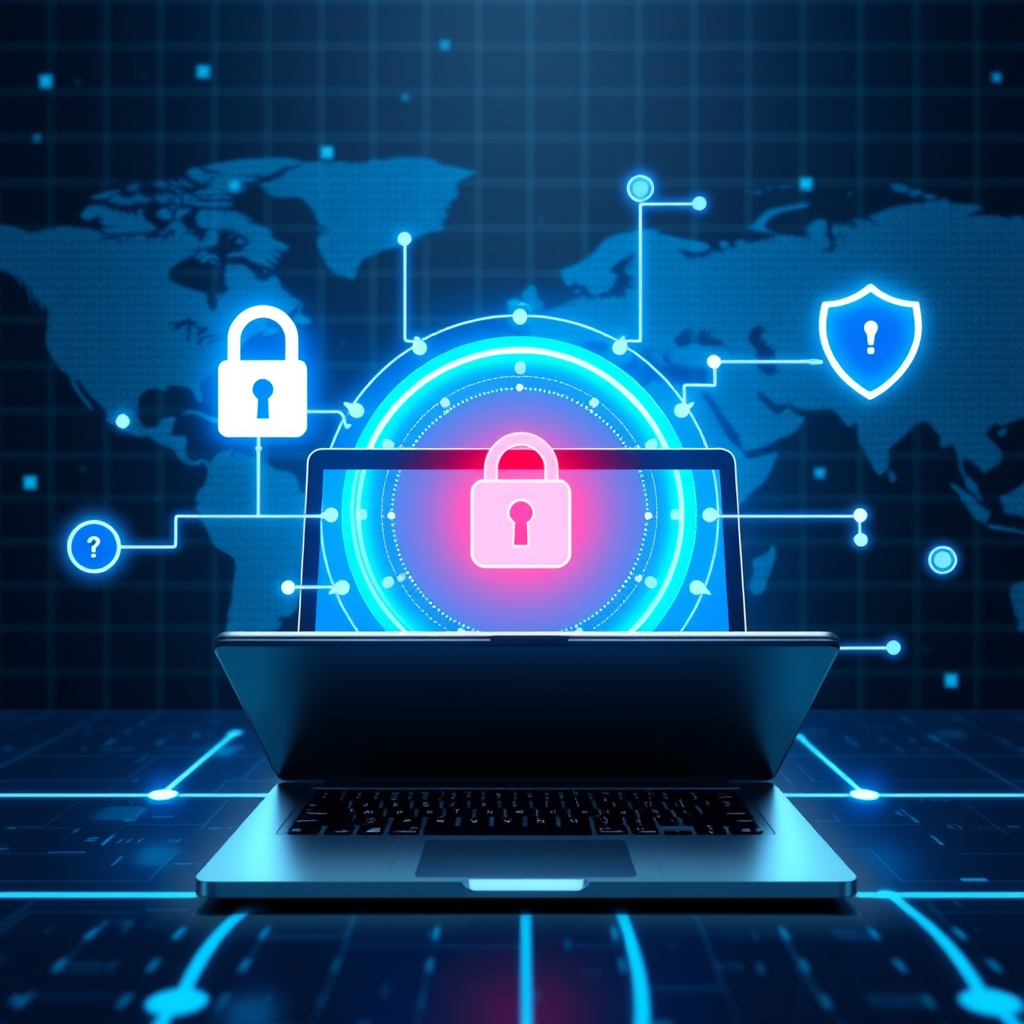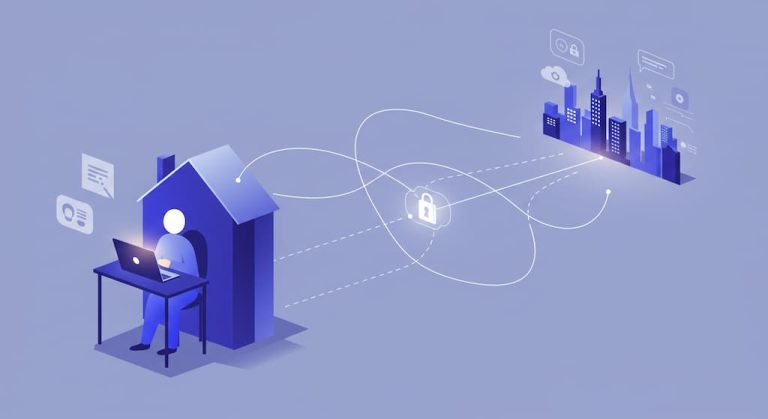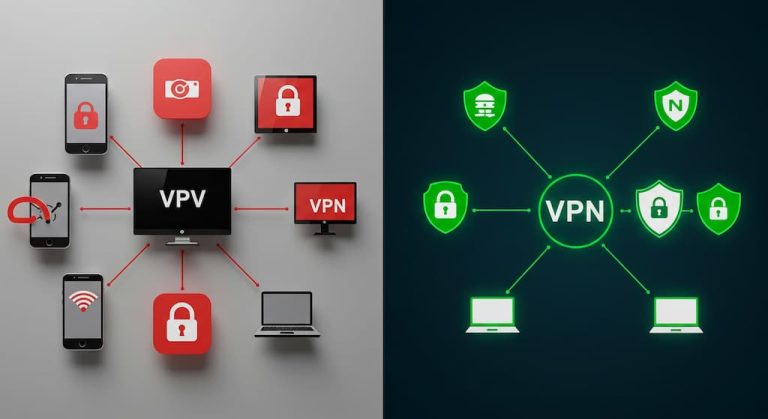The Ultimate Guide to Securing Remote Work: Choosing the Best VPN for Safe Access
In an era where remote work has transitioned from a niche perk to a mainstream operational model, the importance of robust cybersecurity has never been more critical. As businesses adapt to distributed teams, ensuring secure access to sensitive corporate resources becomes paramount. This is where a secure VPN for remote work access stands as an indispensable tool, acting as the first line of defense against an ever-evolving landscape of cyber threats.
Why a Secure VPN is Non-Negotiable for Remote Work Access
The shift to remote operations has introduced significant security challenges. Employees often connect from various locations, using diverse networks – public Wi-Fi, home broadband, co-working spaces – many of which lack enterprise-grade security. This expanded attack surface makes organizations vulnerable to data breaches, phishing attacks, malware, and unauthorized access.
A Virtual Private Network (VPN) creates a private, encrypted tunnel over a public internet connection. For remote work, this means that all data transmitted between an employee’s device and the company’s network is thoroughly encrypted and routed through a secure server. Without a dedicated and secure VPN for remote work access, sensitive corporate data, intellectual property, and client information are at constant risk. The integrity of your business, the privacy of your employees, and compliance with data protection regulations all hinge on this foundational security layer.
Understanding What Makes a VPN ‘Secure’ for Remote Work
Not all VPNs are created equal, especially when corporate security is on the line. To ensure a truly secure VPN for remote work access, several critical features and practices must be in place:
1. Robust Encryption Standards
At the core of any secure VPN is strong encryption. Look for VPNs that utilize AES-256 (Advanced Encryption Standard with 256-bit keys), often referred to as ‘military-grade’ encryption. This standard is virtually uncrackable with current technology, ensuring that even if intercepted, your data remains indecipherable to unauthorized parties.
2. Secure VPN Protocols
The protocol dictates how the VPN tunnel is established and how data travels through it. Top-tier secure VPNs offer:
- OpenVPN: An open-source, highly configurable, and widely audited protocol known for its balance of security and performance.
- WireGuard: A newer, leaner protocol offering superior speeds while maintaining strong encryption, rapidly gaining popularity.
- IKEv2/IPSec: Fast, stable, and highly secure, particularly good for mobile devices due to its ability to re-establish connections quickly after network changes.
- Avoid PPTP and L2TP/IPSec: While older, these are often less secure or have known vulnerabilities and should not be used for critical remote work access.
3. Strict No-Logs Policy
A “no-logs” policy means the VPN provider does not collect, store, or share any data about your online activity, DNS queries, connection timestamps, or IP addresses. For remote work, this is crucial for privacy and compliance. Ideally, choose a VPN that has had its no-logs policy independently audited by a reputable third party.
4. Kill Switch and DNS Leak Protection
- Kill Switch: An essential security feature that automatically disconnects your device from the internet if the VPN connection drops unexpectedly. This prevents any unencrypted data from being exposed.
- DNS Leak Protection: Ensures that your DNS queries (which translate domain names into IP addresses) are routed through the VPN’s secure servers, preventing your ISP or other entities from seeing your browsing activity.
5. Multi-Factor Authentication (MFA)
For corporate VPNs, MFA adds an extra layer of security, requiring users to verify their identity using a second factor (e.g., a code from a mobile app, a fingerprint scan) in addition to their password. This significantly reduces the risk of unauthorized access even if credentials are compromised.
6. Dedicated IP Options
While most consumer VPNs offer shared IP addresses, a dedicated IP address can be beneficial for remote work. It provides a consistent IP address, which can simplify access to restricted corporate resources that whitelist specific IPs. It also reduces the chances of being flagged by services that are sensitive to frequently changing IP addresses, which can happen with shared IPs.
Benefits of Deploying a Secure VPN for Remote Work
Implementing a robust secure VPN for remote work access brings a multitude of benefits for both the organization and its employees:
- Data Protection & Privacy: Encrypts all data, protecting sensitive information from interception, whether it’s financial records, intellectual property, or personal employee data.
- Secure Access to Internal Resources: Allows remote employees to safely access internal company servers, databases, CRM systems, and shared drives as if they were in the office network.
- Mitigation of Public Wi-Fi Risks: Transforms insecure public Wi-Fi networks into safe environments for work, preventing ‘man-in-the-middle’ attacks and snooping.
- Compliance with Regulations: Helps organizations meet stringent data protection regulations such as GDPR, HIPAA, and CCPA by ensuring data privacy and secure transmission.
- Enhanced Employee Trust and Productivity: Employees can work confidently from any location, knowing their connection is secure, fostering flexibility and potentially boosting morale and productivity.
- Reduced Cyber Insurance Premiums: Demonstrating strong security postures, including VPN deployment, can lead to lower premiums for cybersecurity insurance.
Choosing the Right Secure VPN for Your Team
Selecting the ideal secure VPN for remote work access involves more than just looking for encryption. Consider these factors:
- Performance (Speed & Reliability): A slow VPN can hinder productivity. Look for providers with consistently high speeds and stable connections, especially important for video conferencing and large file transfers.
- Server Network & Locations: A wide global network of servers ensures reliable connections and can be crucial for teams spread across different geographical regions or for accessing region-specific content.
- User-Friendliness & Device Compatibility: The VPN should be easy to set up and use across all devices (laptops, smartphones, tablets) and operating systems (Windows, macOS, Linux, iOS, Android) that your team uses.
- Scalability for Teams: Ensure the VPN provider offers business or team accounts that allow easy management of multiple user licenses, centralized billing, and dedicated support.
- Customer Support: Responsive and knowledgeable 24/7 customer support is invaluable for troubleshooting and ensuring minimal downtime.
- Pricing & Value: Balance features, performance, and security against the cost. Consider long-term plans for better value, but prioritize security over a low price point.
- Independent Audits & Transparency: Opt for providers that regularly submit to independent security audits of their infrastructure, code, and no-logs policy, demonstrating a commitment to transparency and trust.
Implementing and Managing Your Secure VPN Solution
Deployment of a secure VPN for remote work access requires careful planning:
- Assess Needs: Determine the number of users, types of resources accessed, and geographical spread of your team.
- Pilot Program: Test the chosen VPN with a small group of users before a full rollout to identify and resolve any issues.
- Employee Training: Educate employees on the importance of using the VPN, how to connect, best practices for secure remote work, and what to do in case of an issue.
- Centralized Management: Utilize a business-grade VPN solution that offers a central dashboard for user management, policy enforcement, and activity monitoring.
- Regular Updates: Ensure both the VPN software and underlying operating systems are kept up-to-date to patch vulnerabilities.
- Review and Optimize: Periodically review VPN usage, performance, and security features to ensure it continues to meet your organizational needs.
Beyond the VPN: A Holistic Approach to Remote Work Security
While a secure VPN for remote work access is foundational, it’s just one piece of the puzzle. A comprehensive remote work security strategy also includes:
- Strong Password Policies & Password Managers: Enforce complex, unique passwords and encourage the use of reputable password managers.
- Endpoint Security: Implement robust antivirus and anti-malware solutions on all employee devices.
- Regular Software Updates: Ensure operating systems, applications, and browsers are always up-to-date to patch known vulnerabilities.
- Employee Training & Awareness: Conduct regular cybersecurity training to educate employees on phishing, social engineering, and safe browsing habits.
- Incident Response Plan: Have a clear plan in place for how to respond to and mitigate security incidents.
- Zero Trust Architecture: Moving towards a Zero Trust model, where no user or device is inherently trusted, regardless of their location, and every access request is verified.
The Future of Secure Remote Work
The landscape of remote work security is continually evolving. We’re seeing a push towards more integrated solutions like Secure Access Service Edge (SASE), which converges network security functions (including VPN) with WAN capabilities into a single cloud-native service. This offers a more flexible and scalable approach to delivering secure access from anywhere, a natural evolution for organizations seeking a more dynamic and secure VPN for remote work access solution.
Conclusion
For businesses embracing the flexibility and efficiency of remote work, investing in a high-quality, secure VPN for remote work access is no longer optional – it’s an absolute necessity. It serves as the bedrock of your remote cybersecurity strategy, safeguarding sensitive data, ensuring regulatory compliance, and enabling your team to work productively and securely from any location. By understanding the critical features of a secure VPN and integrating it into a broader security framework, organizations can confidently navigate the complexities of the digital workspace and thrive in the remote-first era. Choose wisely, implement diligently, and empower your remote workforce with the secure access they need to succeed.
“,
“image_prompt”: “A remote worker’s laptop securely connected to a corporate network via a glowing blue VPN tunnel, surrounded by abstract digital security symbols like a lock and shield, against a backdrop of a global network grid. The scene is futuristic and emphasizes secure, seamless connectivity.


